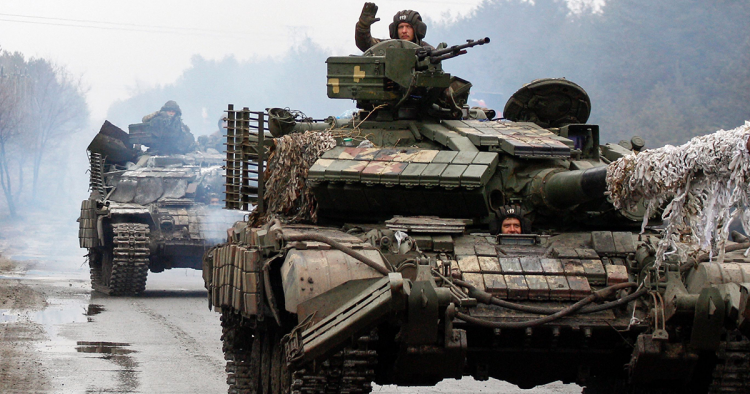Table of Contents
Vladimir Putin, Russia’s dominant political figure for more than two decades, has played a pivotal role in reshaping the country’s identity and nationalism. During his tenure as president and prime minister, Putin has leveraged history, culture and geopolitical events to craft a narrative of Russian identity that resonates with a significant portion of the population. In this article, we explore Putin’s influence on Russia’s identity and nationalism, examining the strategies and ideologies that have contributed to this transformation.
Vladimir Putin’s enduring presence in Russian politics has indeed left an indelible mark on the country’s identity and nationalism. Over the span of his more than two-decade-long leadership, Putin has skillfully harnessed various elements, including historical narratives, cultural symbols and geopolitical events, to shape a distinctive and resonant vision of Russian identity.
One of the key strategies employed by Putin is his adept use of history. Under his leadership, there has been a concerted effort to promote a particular interpretation of Russia’s historical legacy. This narrative often emphasizes Russia’s role as a great power, its contributions to world history and its resilience in the face of adversity. By invoking historical events and figures, Putin has sought to instill a sense of pride and continuity in the Russian identity, reinforcing the notion that Russia has a unique and enduring place in the world.
Cultural symbolism has also been instrumental in Putin’s approach to nationalism. The revival and celebration of Russian cultural traditions, including Orthodox Christianity, have been prominent themes during his rule. These cultural symbols are not just markers of identity but also serve as rallying points for a shared sense of belonging. They create a narrative that positions Russia as a defender of traditional values in a changing world, resonating with those who perceive globalization as a threat to cultural heritage.
Geopolitical events have provided Putin with opportunities to strengthen the narrative of Russian identity. Moments such as the annexation of Crimea in 2014 and Russia’s role in Syria have been portrayed as acts of defending Russian interests and national pride. These events have been framed as responses to external challenges, fostering a sense of unity and resolve among the population.
Putin’s leadership style, characterized by a strong and assertive demeanor, has also contributed to the shaping of Russian nationalism. His image as a decisive and resolute leader appeals to those who value strength and stability in a world marked by uncertainty. This perception of leadership aligns with the idea that Russia requires a firm hand to navigate the complexities of the international stage.
While Putin’s influence on Russian identity and nationalism is undeniable, it is a topic that evokes diverse perspectives both within Russia and abroad. Critics argue that his approach has at times exacerbated divisions and fueled aggressive nationalism, while supporters contend that he has provided much-needed stability and a renewed sense of pride in Russia’s place in the world.
In conclusion, Vladimir Putin’s impact on Russia’s identity and nationalism is a complex and multifaceted phenomenon. It reflects his ability to harness history, culture and geopolitics to craft a narrative that resonates with a significant portion of the population. Understanding this influence is essential for comprehending Russia’s domestic and international policies and its role in the evolving global landscape.
Don’t stop here; you can continue your exploration by following this link for more details: The Role of the Military in Russian Politics and Foreign Policy Over …
Cultivation of National Pride
Putin’s leadership has been marked by a deliberate cultivation of national pride and a renewed sense of Russian identity. Central to this effort has been a focus on historical narratives that emphasize Russia’s role as a great power. Putin has promoted the celebration of Russia’s historical achievements, such as its victory in World War II and has emphasized the contributions of Russian culture and science to the world.
Putin’s leadership has indeed fostered a profound resurgence of national pride and a rekindled sense of Russian identity among its citizens. This transformation is deeply rooted in the deliberate cultivation of historical narratives that cast Russia as a great power with a storied past and an influential present.
One pivotal aspect of this effort has been the celebration of Russia’s historical triumphs, with the victory in World War II standing as an iconic symbol of national heroism and resilience. The annual Victory Day celebrations have become grand spectacles, uniting generations and reminding Russians of their collective strength in the face of adversity. This historical perspective instills a sense of pride in the nation’s ability to overcome challenges and defend its sovereignty.
Putin has also emphasized Russia’s contributions to global culture and science, underscoring the nation’s significance on the world stage. Russian literature, music, ballet and scientific achievements have made indelible marks on human civilization and Putin has consistently highlighted these cultural and intellectual contributions. This not only boosts national morale but also fosters a sense of cultural identity and appreciation.
The deliberate cultivation of national pride and a renewed sense of Russian identity have not only shaped the domestic landscape but also played a role in Russia’s foreign policy and international relations. By projecting a strong and confident image, Putin’s administration has aimed to assert Russia’s status as a major global player, influencing diplomatic negotiations and geopolitical dynamics.
However, this focus on national pride has also sparked debates and concerns, both domestically and internationally. Critics argue that it can lead to the suppression of dissenting voices and a narrowing of the space for civil society, potentially stifling diversity and freedom of expression.
In essence, Putin’s leadership has artfully harnessed historical narratives and cultural achievements to cultivate a distinct sense of Russian identity and pride. This carefully crafted image has not only influenced domestic policies and public sentiment but has also played a role in shaping Russia’s role and aspirations on the global stage, making it a central aspect of Putin’s legacy.
If you’d like to dive deeper into this subject, there’s more to discover on this page: The Role of the Military in Russian Politics and Foreign Policy Over …
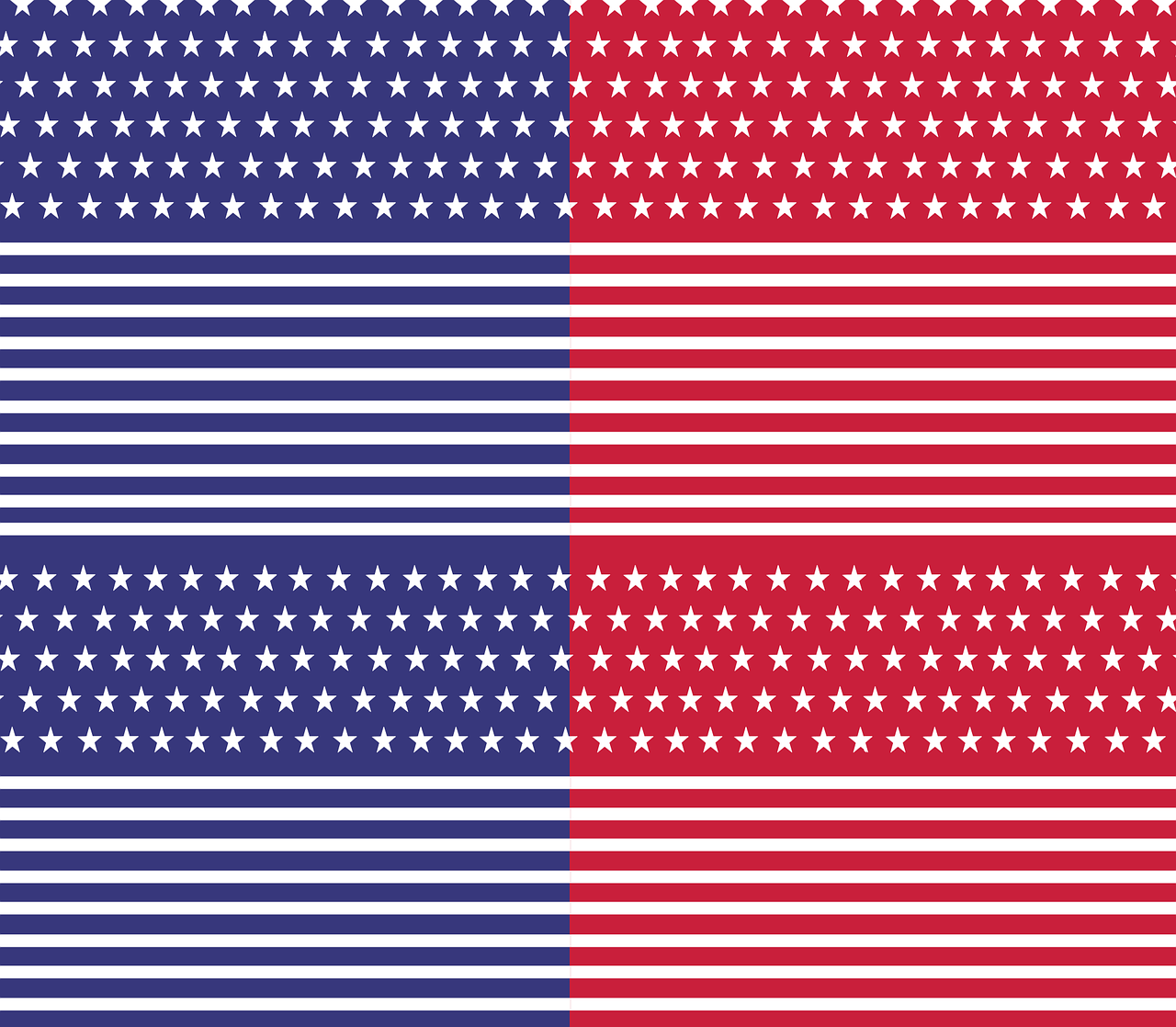
Conservative Values and Traditionalism
Under Putin’s leadership, Russia has seen a return to conservative values and traditionalism. The government has promoted Orthodox Christianity as a unifying force in Russian society and has enacted laws that support traditional family values. This approach appeals to a segment of the population that sees these values as intrinsic to Russian identity.
Under Putin’s leadership, Russia’s embrace of conservative values and traditionalism has been a defining aspect of the country’s cultural and political landscape. The government’s deliberate promotion of Orthodox Christianity as a unifying force has played a pivotal role in this shift. This has been manifested in the increased visibility and influence of the Russian Orthodox Church in public life, from religious ceremonies to education.
Moreover, the enactment of laws supporting traditional family values has resonated with a significant segment of the Russian population. These laws have included restrictions on LGBTQ+ rights, such as the controversial “anti-propaganda” law, which prohibits the promotion of non-heterosexual relationships to minors. While these policies have drawn criticism from human rights organizations and Western countries, they have garnered support from those who view these measures as essential in preserving what they see as the core values of Russian identity.
This return to conservative values has not only shaped domestic policies but has also had implications for Russia’s stance on the international stage. It has positioned Russia as a counterforce to what is perceived as Western liberal hegemony, especially regarding social and cultural norms. This positioning has had an impact on Russia’s relations with other countries, contributing to tensions with Western nations.
However, it’s important to note that this conservative shift is not uniform across Russian society. While it has found strong support in some segments, there are others who advocate for more progressive and liberal values. This internal diversity reflects the complexity of Russian society and the ongoing debates about the country’s identity and future direction.
In conclusion, under Putin’s leadership, Russia’s embrace of conservative values and traditionalism has been a notable aspect of its domestic and international policies. This approach, driven by the promotion of Orthodox Christianity and the reinforcement of traditional family values, appeals to a segment of the population that sees these values as integral to Russian identity. Yet, it also underscores the ongoing societal debates and divisions within Russia, reflecting the intricate interplay of cultural, political and ideological forces in the country.
To expand your knowledge on this subject, make sure to read on at this location: PUTIN’S ASYMMETRIC ASSAULT ON DEMOCRACY IN RUSSIA …
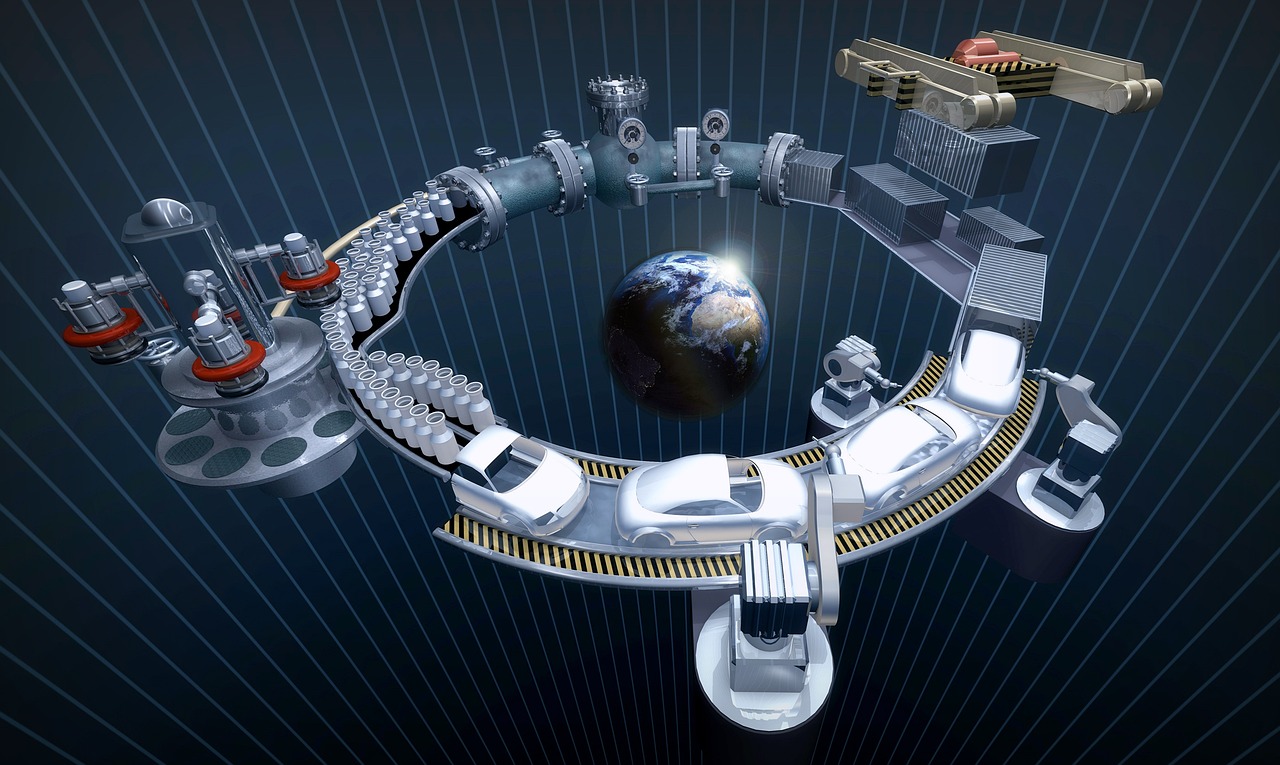
Assertive Foreign Policy
Putin’s assertive foreign policy, particularly in regions like Ukraine and Syria, has been framed as a defense of Russian interests and a reassertion of national pride. The annexation of Crimea, in particular, was presented as a move to protect ethnic Russians and assert Russian sovereignty, resonating with nationalist sentiments.
Putin’s assertive foreign policy, with notable actions in regions like Ukraine and Syria, has been strategically framed as a defense of Russian interests and a reassertion of national pride. One of the most significant episodes in this regard was the annexation of Crimea, which was meticulously presented as a move to safeguard the rights and security of ethnic Russians living in the region, all while firmly asserting Russian sovereignty.
This approach has resonated profoundly with nationalist sentiments within Russia. Putin’s portrayal of Russia as a protector of its diaspora abroad has engendered a sense of national unity and pride. It taps into a historical narrative of safeguarding Russian-speaking communities, which many Russians view as a responsibility deeply ingrained in their national identity.
Moreover, this assertive foreign policy stance has sought to counter what Putin’s administration perceives as encroachments on Russia’s sphere of influence by Western powers. It has positioned Russia as a staunch defender of its interests and a counterbalance to Western dominance in global affairs. This positioning has garnered support not only among nationalist groups but also among segments of the population who feel Russia should have a stronger role on the international stage.
However, this assertiveness has also generated significant international controversy and strained relations with Western nations. The annexation of Crimea, in particular, was met with widespread condemnation and led to sanctions against Russia. This international backlash illustrates the complexities of Putin’s foreign policy approach and the delicate balance between pursuing national interests and navigating the intricacies of global diplomacy.
As Putin continues to shape Russia’s foreign policy, the repercussions of his assertive approach ripple across the international stage, influencing geopolitics, alliances and global discourse. The narrative of defending Russian interests and asserting national pride remains a potent force, shaping not only Russia’s relationship with the world but also its domestic politics and the broader dynamics of international relations.
Don’t stop here; you can continue your exploration by following this link for more details: Aspirations to Great Power Status: Russia’s Path to Assertiveness in …
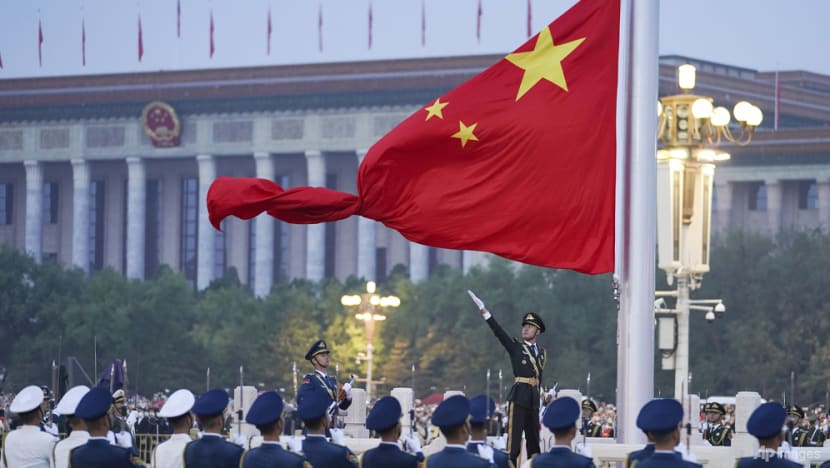
Media Control and Propaganda
The Russian media landscape has been carefully managed under Putin’s rule, with state-controlled or state-influenced outlets dominating the information space. This control over the media has allowed the government to shape the narrative surrounding Russian identity, often portraying Putin as a strong and capable leader who has restored Russia’s standing in the world.
The media landscape in Russia during Putin’s rule has indeed undergone a transformation, characterized by a careful management of information dissemination. State-controlled or state-influenced media outlets have come to dominate the information space, exerting a significant influence on public perception and the national narrative. This influence extends beyond mere news reporting; it plays a pivotal role in shaping the perception of Russian identity and Putin’s leadership. To delve deeper into this intricate media landscape and its implications, consider the following:
1. Media Control and Influence: Putin’s administration has employed various means to consolidate control over media outlets. This control ranges from direct state ownership to regulatory mechanisms that affect editorial independence. This consolidated media environment has allowed the government to effectively convey its messaging to the public.
2. Shaping the Narrative: The control over media outlets has enabled the government to craft a narrative that portrays Putin as a strong and capable leader. This narrative emphasizes his role in restoring Russia’s global stature, presenting him as a defender of Russian interests on the international stage.
3. Cultivation of National Identity: The media has played a crucial role in cultivating a sense of national identity in Russia, often emphasizing elements of patriotism and pride in the country’s history and achievements. This narrative reinforces Putin’s image as a leader who embodies and protects these values.
4. Consolidation of Power: The media landscape also reflects the broader consolidation of political power in Russia. The alignment of media outlets with state interests reinforces the government’s authority and minimizes dissenting voices.
5. Challenges to Independent Reporting: Independent journalism faces significant challenges in this environment, with some journalists and media organizations encountering restrictions, harassment or even closure if their reporting does not align with the government’s narrative.
6. Influence on Public Opinion: The control over media has a direct impact on public opinion. Putin’s approval ratings, bolstered by positive media coverage, have remained relatively high over the years. However, questions have arisen about the extent to which these ratings reflect genuine sentiment or are influenced by media messaging.
7. Digital Media Landscape: The rise of digital media and social networks has introduced new dynamics to the media landscape. Independent reporting and alternative viewpoints can still find a platform online, challenging the government’s narrative.
8. International Implications: Russia’s media landscape also has international implications. It shapes how Russia is perceived globally, impacting diplomatic relations and international discourse.
9. Media Literacy and Critical Thinking: In this media environment, media literacy and critical thinking become crucial for the public. Citizens must navigate a landscape where information may be carefully curated and discerning truth from propaganda is a complex endeavor.
In conclusion, the media landscape in Russia under Putin’s rule is characterized by a careful management of information and a strong influence on public perception. It plays a pivotal role in shaping the narrative of Russian identity and Putin’s leadership, both domestically and on the global stage. The relationship between media and governance in Russia continues to evolve, posing challenges and opportunities for those seeking to understand the nation’s dynamics and its place in the world.
Looking for more insights? You’ll find them right here in our extended coverage: Article by Vladimir Putin ”On the Historical Unity of Russians and …
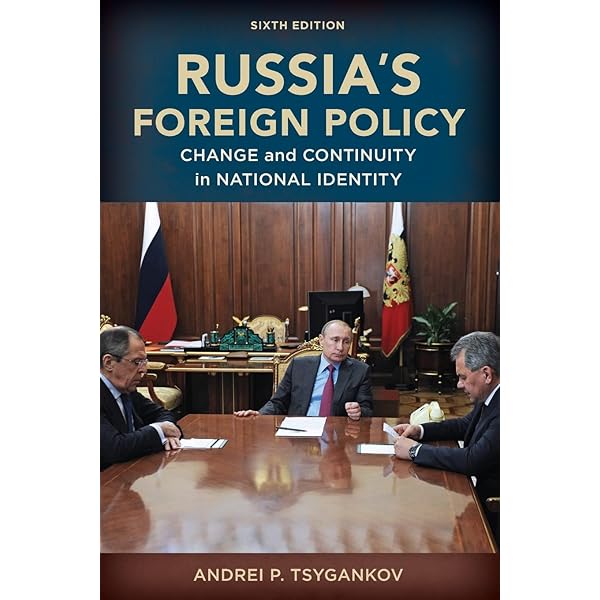
Geopolitical Messaging
Putin’s government has also used geopolitical messaging to shape Russian nationalism. This includes portraying Russia as a victim of external aggression, particularly from Western nations and as a nation that must remain vigilant and strong in the face of perceived threats. Such messaging reinforces a sense of national unity and identity.
In addition to its role in governance and foreign policy, Putin’s government has strategically utilized geopolitical messaging as a powerful tool to shape and reinforce Russian nationalism. The narrative crafted by the government is carefully designed to evoke specific sentiments and solidify a collective sense of national identity.
One of the recurring themes in this narrative is the portrayal of Russia as a historical victim of external aggression, often emphasizing its resilience in the face of adversities. This narrative draws on Russia’s tumultuous history, invoking memories of invasions and conflicts, to unite the population in a shared historical narrative. By accentuating past challenges and emphasizing overcoming them, the government fosters a sense of collective strength and pride, reaffirming the notion of a resilient and enduring Russian nation.
Moreover, the government underscores the idea of vigilance and strength in the face of perceived threats from the West and other external forces. This portrayal serves to mobilize the populace and instill a sense of duty and responsibility to protect the nation’s interests and sovereignty. By framing the international arena as potentially hostile, the government encourages a heightened sense of patriotism and readiness to defend the nation, further solidifying the bonds of national unity.
The strategic use of media, propaganda and state-controlled outlets amplifies these narratives, ensuring a consistent message that resonates with the public. State-owned television channels, social media and public addresses by political leaders all play a crucial role in disseminating and reinforcing this narrative. This continuous reinforcement helps cultivate a shared national consciousness and reinforces the government’s influence over the public discourse.
However, it’s important to note that this approach to shaping Russian nationalism is not without criticism. Critics argue that this narrative can sometimes lead to an “us versus them” mentality, isolating Russia from potential collaborative efforts with other nations and fostering distrust in international relations.
In summary, the strategic use of geopolitical messaging by Putin’s government plays a significant role in shaping and reinforcing Russian nationalism. By framing Russia’s historical experiences, emphasizing vigilance against perceived threats and leveraging media to propagate these narratives, the government strengthens national unity and cultivates a collective identity that aligns with its political agenda.
If you’d like to dive deeper into this subject, there’s more to discover on this page: Think Tank reports on the invasion of Ukraine – Consilium
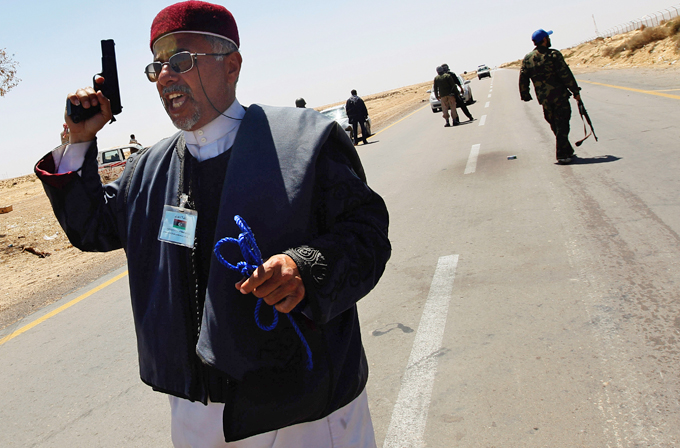
Challenges and Controversies
Putin’s approach to reshaping Russian identity and nationalism is not without its controversies. Critics argue that the emphasis on conservative values can stifle dissent and limit individual freedoms. Additionally, Russia’s assertive foreign policy has led to tensions with Western countries and accusations of aggression.
Putin’s deliberate approach to reshaping Russian identity and nationalism is a multifaceted endeavor that has drawn both praise and criticism on the domestic and international fronts. While it has found support among many Russians who value the promotion of traditional and conservative values, it has also sparked considerable controversy and debate.
One of the core criticisms centers on the potential stifling of dissent and the restriction of individual freedoms. Critics argue that the emphasis on conservative values, often associated with the Orthodox Church and traditional family structures, can create an environment where alternative viewpoints are marginalized or suppressed. Laws targeting “non-traditional” lifestyles and the restriction of civil society organizations have raised concerns about the state’s interference in personal lives and the erosion of civil liberties.
Furthermore, Russia’s assertive foreign policy under Putin’s leadership has generated tensions with Western countries and accusations of aggression. Actions such as the annexation of Crimea and Russia’s involvement in Eastern Ukraine have strained Russia’s relations with the West. Critics argue that these actions not only violate international norms but also contribute to the perception of Russia as a disruptive force in global politics.
However, it’s important to note that Putin’s approach to reshaping Russian identity and nationalism also has its proponents. Many Russians view it as a means to strengthen their country’s cultural and moral fabric, preserving traditional values in the face of perceived Western encroachment. For them, Putin’s emphasis on Russian heritage and identity is a source of national pride and a bulwark against what they see as corrosive Western influences.
Additionally, Putin’s foreign policy, while criticized in the West, has found support among some Russians who view it as a reassertion of Russia’s global standing and a defense of its interests. They argue that Russia has been responding to perceived provocations and safeguarding its sphere of influence in the face of NATO expansion and other geopolitical developments.
In conclusion, Putin’s approach to reshaping Russian identity and nationalism remains a deeply divisive and contentious issue, both within Russia and on the global stage. The tension between conservative values, individual freedoms and assertive foreign policy has fueled a complex and ongoing debate about Russia’s trajectory and its place in the world. As these dynamics continue to evolve, they will shape not only Russia’s domestic policies but also its relationships with the international community for years to come.
Should you desire more in-depth information, it’s available for your perusal on this page: Scientific Putinism: Shaping Official Ideology in Russia – Carnegie …

Vladimir Putin’s role in reshaping Russia’s identity and nationalism has been a defining feature of his leadership. By emphasizing historical pride, conservative values and assertive foreign policy, Putin has fostered a sense of national pride and unity that resonates with a significant portion of the Russian population. However, this approach has also generated controversy and strained relations with Western nations.
As Russia continues to navigate its role on the global stage, Putin’s influence on the country’s identity and nationalism will remain a topic of debate and analysis, reflecting the complexities of contemporary Russian politics and society.
Should you desire more in-depth information, it’s available for your perusal on this page: Think Tank reports on the invasion of Ukraine – Consilium
More links
For additional details, consider exploring the related content available here Russia’s War in Ukraine: Identity, History, and Conflict
